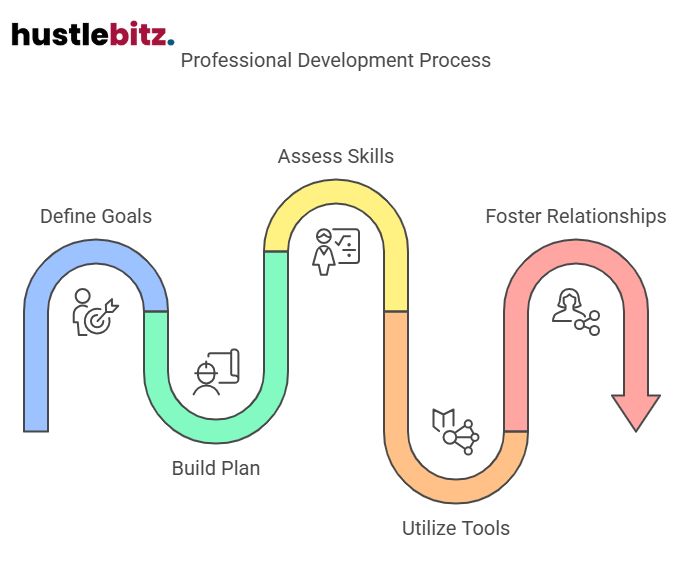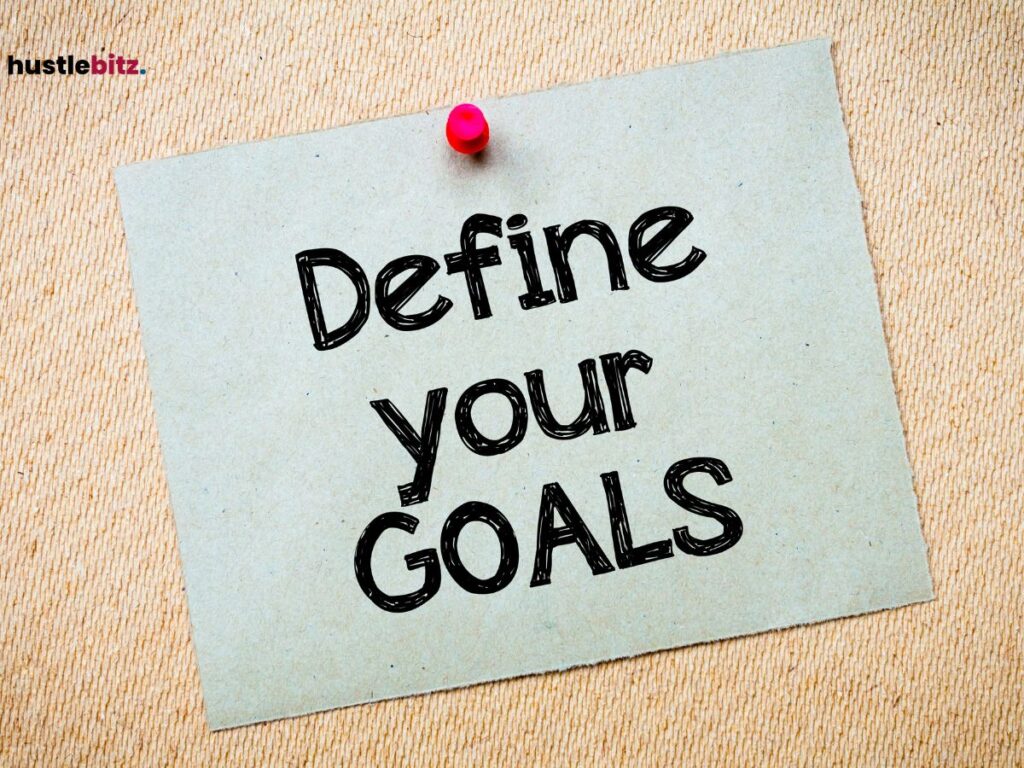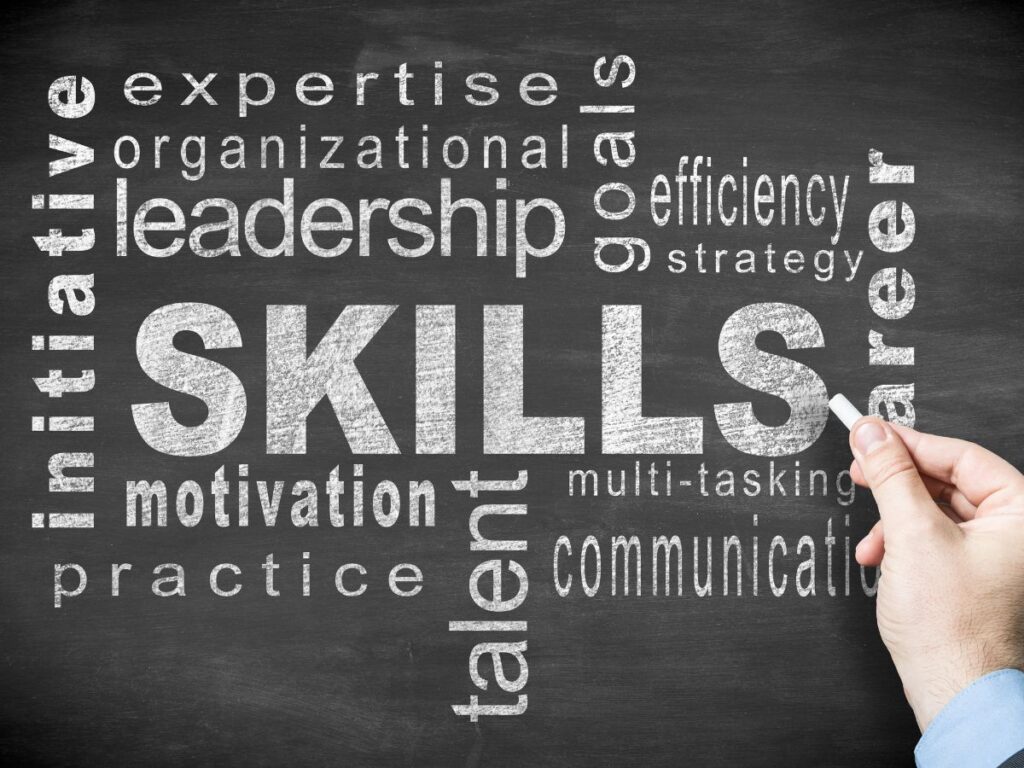Effective strategies for achieving professional development goals begin with clear definition and application of SMART criteria—specific, measurable, achievable, relevant, and time-bound objectives. Establish a personal development plan that outlines necessary skills and incorporates mentorship for guidance. Regularly monitor progress through self-reflection and feedback loops, allowing for adjustments as needed. Identify key skills relevant to your career and consider tools like online courses and networking events to expand your knowledge base. Emphasizing a balanced approach will foster your growth while ensuring well-being. To enhance your professional journey, there are further insights worth exploring.
Key Takeaways
- Clearly define professional development goals using the SMART criteria to ensure they are specific, measurable, achievable, relevant, and time-bound.
- Build a personal development plan that outlines steps for skill enhancement and incorporates mentorship for guidance and networking opportunities.
- Regularly assess and identify key skills to address strengths and gaps, emphasizing the importance of soft skills and adaptability.
- Utilize professional development tools such as online courses, mentorship programs, and networking events to enhance learning and career growth.
- Foster emotional intelligence and collaboration to strengthen professional relationships and support continuous improvement in development efforts.

Define Your Goals Clearly

To effectively embark on your professional development journey, it is essential to define your goals clearly and ensure they are both specific and measurable. Goal setting serves as the foundation for achieving your career aspirations and aligning them with your personal vision.
Begin by identifying what you truly want to accomplish in your professional life, ensuring these goals are concrete and aligned with your long-term objectives.
Utilizing motivational techniques can enhance your commitment to these goals. Consider employing time management strategies that prioritize tasks related to your goals, allowing for steady progress. Additionally, establishing accountability partners can provide necessary support and encouragement, fostering a sense of responsibility that drives you forward.
Incorporating feedback loops into your process is vital for refining your approach. Regular assessments of your progress against defined success metrics ensure that you remain on track and can adjust your strategies as needed. These metrics should be clear indicators of success, enabling you to measure your achievements effectively.
Engaging in self-reflection practices is equally important in this journey. By routinely evaluating your actions and their alignment with your defined goals, you can identify areas for improvement and celebrate your successes. This continuous reflection not only enhances your understanding of your personal and professional growth but also reinforces your commitment to achieving your aspirations.
Build a Personal Development Plan
A personal development plan serves as a strategic roadmap that outlines the steps necessary to achieve your professional goals and enhance your skill set. This plan begins with self-assessment methods, which allow you to evaluate your current skills, interests, and areas for improvement. By identifying your learning styles, you can tailor your development activities to maximize effectiveness.
Incorporating mentorship programs into your plan is essential, as mentors can provide valuable insights and guidance. They can also help facilitate networking opportunities that expose you to new ideas and career paths. As you progress, regularly seek feedback incorporation to refine your approach and ensure alignment with your goals.
Effective time management is crucial in executing your personal development plan. Allocate dedicated time for skill prioritization, ensuring that your efforts focus on the most impactful areas. Career mapping can help visualize your trajectory, enabling you to set realistic milestones along the way.
Resource allocation is another key component, as it involves identifying the tools, courses, or workshops necessary for your growth. Consider enrolling in programs that align with your objectives and budget.
Additionally, establish accountability partners who can support you in staying committed to your goals. These partnerships foster motivation and provide encouragement as you navigate your professional journey.
Utilize SMART Criteria

Utilizing the SMART criteria—specific, measurable, achievable, relevant, and time-bound—ensures that professional development goals are clearly defined and strategically structured for success. The SMART framework provides a comprehensive approach, enabling individuals to set goals that are not only well-defined but also conducive to effective progress tracking.
Specific actions are essential; they clarify what exactly needs to be accomplished. For instance, instead of stating a vague goal like ‘improve skills,’ one might specify, ‘complete a project management certification.’ This specificity helps in setting measurable outcomes that allow individuals to evaluate their progress.
Achievable targets are crucial as they establish realistic expectations. Goals should challenge individuals without pushing them beyond their capabilities, ensuring motivation and commitment. Relevant objectives ensure that the goals align with broader career aspirations, enhancing their significance and urgency.
Time-bound deadlines are another critical component. By assigning a clear timeframe to each goal, individuals can foster a sense of accountability and urgency, which can significantly impact their motivation to achieve the set targets.
Incorporating feedback loops is vital for continuous improvement. Regularly assessing progress allows for adjustments to be made, ensuring that goals remain aligned with evolving professional needs.
Ultimately, employing the SMART criteria not only clarifies the path towards professional development but also enhances the likelihood of achieving meaningful results. By adhering to this structured approach, individuals can navigate their career development with confidence and clarity.
Identify Key Skills

Identifying key skills is a fundamental step in the professional development process, as it enables individuals to align their goals with the competencies necessary for success in their chosen field. Conducting a thorough skill assessment is essential to recognize both existing strengths and skill gaps. This analysis helps individuals understand which technical skills and soft skills are required to excel in their industry.
To remain competitive, professionals must stay informed about industry trends that may dictate the demand for specific skills. For instance, emerging technologies might necessitate the acquisition of new technical skills, while evolving workplace dynamics may highlight the importance of strong communication skills and leadership qualities.
Recognizing transferable skills is also crucial; these are abilities that can be applied across various roles and industries, enhancing adaptability in a rapidly changing job market. Moreover, fostering soft skills such as emotional intelligence, teamwork, and problem-solving capabilities is vital for effective collaboration and networking strategies. These skills are often as valuable as technical proficiency, if not more so, in influencing career progression.
Lastly, embracing a mindset of continuous learning is imperative. This ensures that professionals remain agile in their career paths, ready to acquire new skills as needed. By identifying key skills, individuals can create a focused development plan that facilitates personal and professional growth, ultimately leading to enhanced job performance and satisfaction.
Professional Development Tools and Resources

An array of professional development tools and resources is essential for individuals aiming to enhance their skills and advance their careers. Among the most effective means are online courses offered through e-learning platforms, which provide flexible learning opportunities tailored to various professional needs. These courses cover a wide range of topics, enabling individuals to acquire new skills at their own pace.
Mentorship programs are another invaluable resource, pairing less experienced professionals with seasoned mentors who offer guidance and insight. Such relationships foster growth and provide a personal touch to professional development. Additionally, networking events facilitate connections with peers and industry leaders, expanding one’s professional circle and uncovering potential career opportunities.
To gauge progress and identify areas for improvement, skill assessments are crucial. These assessments can be complemented by feedback tools that solicit constructive criticism, helping professionals understand their strengths and weaknesses. Industry webinars further enhance learning by offering up-to-date knowledge on trends and best practices.
Productivity apps support daily organizational tasks and project management, ensuring that individuals remain focused and efficient in their development efforts. Coaching sessions can also provide personalized strategies for professional advancement, while peer collaborations encourage teamwork and exchange of ideas, fostering a culture of continuous improvement.
Create a Balanced Approach
A balanced approach to professional development integrates various tools and resources while prioritizing individual goals and learning preferences. Achieving work-life balance is essential in this process, as it ensures that personal well-being is maintained alongside professional aspirations.
Skill diversification plays a crucial role, enabling individuals to expand their expertise and remain relevant in an ever-evolving job market. Effective time management strategies can help professionals allocate time for continuous learning, ensuring that they remain engaged and proactive in their development.
Emotional intelligence is another vital component, as it fosters better communication and collaboration, thereby enhancing networking opportunities and building strong mentorship relationships. These connections can provide invaluable guidance and support, facilitating personal and professional growth.
Incorporating feedback mechanisms into the development process allows for ongoing assessment and adjustment of goals, promoting adaptability strategies that are necessary in today’s dynamic work environments. By aligning career objectives with personal values and interests, individuals can create a meaningful career path that resonates with their aspirations.
Ultimately, a balanced approach to professional development encourages individuals to embrace lifelong learning and cultivate resilience. It empowers them to navigate challenges effectively while remaining focused on their goals.
Techniques for Monitoring Goal Achievement

Establishing effective techniques for monitoring goal achievement is essential for ensuring progress and maintaining motivation throughout the professional development journey. One of the most effective methods for achieving this is goal tracking, which provides a structured way to visualize progress and identify areas needing improvement. Regular progress evaluation sessions are necessary to assess how well one is meeting performance metrics and to adjust strategies as needed.
Incorporating feedback loops into this process allows individuals to gather insights from peers or mentors, fostering a collaborative environment for growth. Additionally, having accountability partners can enhance commitment, as sharing goals with someone else encourages responsibility and motivation.
Milestone setting is another crucial aspect, as breaking down larger goals into smaller, manageable tasks makes the journey less overwhelming and allows for incremental successes. Reflective journaling can also play a significant role; documenting thoughts and experiences can reveal patterns in behavior and thought processes that need addressing.
To ensure effective time management, individuals should regularly review their schedules and allocate time for tasks aligned with their goals. Adaptive strategies must also be employed, allowing for flexibility in response to unforeseen challenges or opportunities.
Final Thoughts
Incorporating effective strategies for professional development is crucial for achieving your career goals and fostering continuous growth. By clearly defining your objectives with SMART criteria, building a personalized development plan, and utilizing various tools and resources, you create a solid foundation for success. Regularly assessing your progress through feedback and self-reflection, along with identifying key skills and maintaining a balanced approach, ensures that you remain on track and adaptable in a dynamic work environment. Embracing a comprehensive strategy will not only enhance your professional journey but also empower you to navigate challenges with confidence and achieve long-lasting success.




